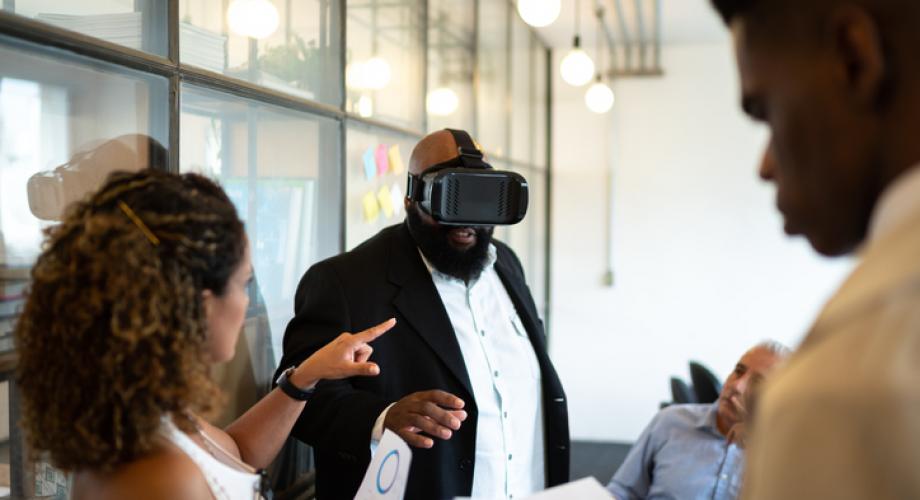Meeting over coffee or leasing in a former retail space can improve conversions.
Even with the option to type to chatbots, view pictures of amenities, floorplans and even lease online, many prospects still want to talk to a real human.
But there's still a problem: People are busy and its often hard for them to get into a leasing for a tour.
“In some areas, such as Chicago, people who are commuting may be taking transit lines that differ [from the community’s location] or who are unable to come in during their work day for a more traditional visit,” says Ashley Yax, Vice President of Sales and Marketing for Village Green.
For Village Green and some other operators (especially those leasing new construction), the solution is simple – take the leasing office to the prospect. That could require a single leasing professional going to meet the prospect or opening up an office in a retail location.
“We are working on pop-up leasing where a leasing agent can meet them [the prospect] somewhere—whether it’s a coffee shop close to their work or even in a brick-and-mortar retail space,” Yax says. “We’re seeing success with this because people who are working and are busy don’t necessarily have the luxury to tell their boss they need to go or decline meetings so that they can come in and take a tour at 2 p.m.”
Other than transportation costs such as gas mileage or transit tickets and time spent out of the office, there are no major additional costs that come from meeting the prospect. This is most effective for companies that already equip their leasing professionals with tablets.
“Using [mobile leasing] hasn’t increased our costs in any way because a lot of our sales offices are already equipped with iPads or Surface Pros,” Yax says. “We just need to make sure that Wi-Fi is available wherever we’re going to meet a prospect. Everything else has already been preloaded onto their tablet, and our leasing staff members are able to execute [the lease signing] right from there.”
Bozzuto also sends leasing agents away from the community to visit prospects, especially during lease-ups.
“This helps in cases where we’re not yet able to get into the apartment community,” says Noel D. Carson, Director of Marketing for Bozzuto. “We’re meeting people in coffee shops with our iPads in tow.”
Meeting prospects doesn’t just help during a time crunch. As Yax explains, it can also be a status thing. Luxury car makers will deliver cars to consumers. Recognizing that was a “light bulb” moment for Yax, who thinks luxury apartment residents will welcome the treatment.
“People who are well-established are already accustomed to this [level of personal service],” she says. “So why wouldn’t we accommodate them in this way.”
While there are many advantages, there are concerns. “It is an interesting concept, but I worry about [leasing agents’] personal safety,” says Steve F. Hallsey, Managing Director for Wood Partners.
Village Green addresses safety a number of ways.
“All appointment details are logged into the CRM [Customer Relationship Management] software and the leasing consultant carries a phone,” Yax says. “When leasing consultants go off-site, the appointment locations are typically busy environments that are public, such as Starbucks, Corner Bakery or a hotel lobby.”
When it wants a more permanent location than a table at Starbucks, Village Green has rented retail space to serve as leasing offices for its new developments. Wood and FPI Management employ similar strategies. The tactic fits the larger trend of temporarily leasing underutilized retail space for a finite period of time. In this case, time might cover the months before a community’s leasing office opens.
When setting up temporary retail leasing centers, Yax says apartment operators need to consider parking, registering the business temporarily on Google, security, storage for collateral and documents, visibility, signage ordinances and creating an inviting space that the customers will feel comfortable in.
“Cost really depends on the location and length of the lease,” Yax says.
Wood has opened retail leasing centers for five new developments this year (Miami, Fort Lauderdale, Chicago, San Diego and Portland). Usually they come online 75 days before the temporary certificate of occupancy in the new apartment community.
“Cost varies,” Hallsey says. “Some retailers give us the space for free because we are driving traffic to their building; others charge a ‘pop-up’ fee, which is a minimal amount, because we don’t ask for tenant improvements.”
